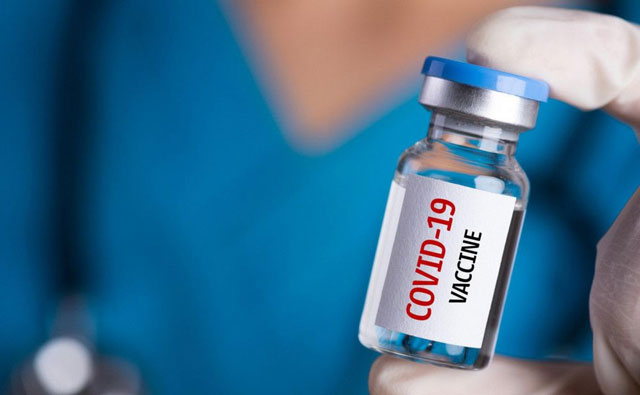
The risks and the challenges
| THE INDEPENDENT Africa’s largest-ever vaccination drive is well under way. Forty-nine African countries are rolling out COVID-19 vaccines and over 22 million doses have been given on the continent. Valuable lessons are emerging, but major risks and challenges threaten Africa’s fragile gains.
Supply crunch
African countries, particularly the approximately 40 nations relying on doses from COVAX and the Serum Institute of India, are being left behind as vaccines made in India are diverted for domestic use.
Just 1% of the 1.3 billion COVID-19 vaccines given globally have been administered in Africa so far and that’s down from 2% a few weeks ago.
“We’re in a very tough spot when it comes to supply,” says Dr Richard Mihigo, World Health Organisation (WHO) Africa’s Immunisation and Vaccines Development Programme Coordinator.
“What is crucial for Africa is that we urgently use all the doses we have to protect our most vulnerable populations.”
WHO recommends that countries prioritise getting the first dose to as many high-risk people as possible, given the short expiry date of some vaccines.
Modelling suggests that vaccinating more people in the highest priority groups with one dose as opposed to vaccinating half that number with two doses will substantially reduce death rates.
Slow rollout
COVID-19 vaccine rollouts have been exemplary in some African countries and eight African nations have already used all of their COVAX doses. Yet nine countries have given less than a quarter of their doses and 15 countries have used less than half.
“It may be that some of the reporting from African countries to WHO is incomplete,” explains Dr Ephrem Lemango, an expert on essential immunisation and primary health care with WHO, “but it seems that many countries need to step up efforts to use their vaccines.”
Factors leading to delays include a lack of funds, trained professionals and hesitancy among the population to get the vaccine. In some countries, insufficient planning, including targeting priority groups and remote populations, are holding back the rollout.
Insufficient funds
Most African countries allocated funds to cover the cost of rolling out the first batch of vaccines, and some to reach all health workers, but funding shortfalls pose a growing threat as the number of people to be reached rises and areas to be covered located further away from major cities.
In some African countries, a lack of funds is already causing delays in addition to a lack of vaccinators, sub-optimal training, weaker communications to boost the uptake of vaccines and an inability to capture crucial data or to print and distribute immunisation cards.
“Commitment and domestic resourcing is crucial,” says Dr Phionah Atuhebwe, WHO Africa’s New Vaccines Introduction Officer.
“When the Republic of Côte d’Ivoire applied to receive vaccines from COVAX that require ultra-cold chains, the government was willing to send the presidential jet to go and get the kit. That is the kind of commitment our countries need.”
COVAX partners are committed to providing up to 30% of Africa’s vaccine doses for free, but African countries must fund the vaccines to cover the rest of the people they aim to vaccinate, while investing in the systems they need to roll out the vaccine.
The World Bank estimates that Africa still needs around $12 billion to reach enough people to ensure adequate protection from COVID-19.
Vaccine safety and hesitancy
Several African countries paused or stopped their vaccine rollouts due to safety concerns. Much of this was driven by fears of adverse side effects that were reported in Europe and the United States of America.
The suspension of the use of the AstraZeneca vaccine among younger adults in Europe has also affected the uptake of the vaccine in younger health workers in some African countries.
Concerns regarding the safety and efficacy of COVID-19 vaccines, as well as myths and misinformation, are spreading fast on social media. This has added to vaccine hesitancy.
Targeting the most at risk
Health workers are easy to find in hospitals and clinics, yet older people and those with conditions that put them at higher risk of COVID-19, are not always easy to identify, particularly in remote areas.
Some African countries registered their priority groups before vaccines arrived, with countries like Angola, Ghana and Nigeria making use of community mobilisers going door-to-door to list people in advance.
Yet authorities in many African countries did not have full and correct documentation of people’s locations, ages and up to date information on which people had existing conditions, or the resources to list them all in advance.
For these reasons and to avoid wasting vaccines, a proportion of the doses have been used to vaccinate people not in the highest priority groups in a number of African countries.
Using different vaccines
Botswana, Rwanda and several other African countries are rolling out more than three different types of COVID-19 vaccine.
If handled well, this can lead to more people quickly getting protected, but it can also create challenges, including around keeping track of who gets what type of vaccine, differing logistics and storage requirements and training vaccinators to give different vaccines.
WHO recommends that countries stick with the same vaccine for both doses, yet with supplies dwindling, countries may be forced to mix second doses, or risk long delays between doses.
Disruptions to essential health services
Over one third of African countries have reported disruptions to essential health and immunization services throughout the pandemic and the onset of COVID-19 vaccinations.
Two-thirds of these countries reported the reallocation of staff to provide COVID-19 relief as the main driver for the disruptions, but fear of contracting COVID-19 has also led to lower numbers of patients seeking care for other conditions.
****
 The Independent Uganda: You get the Truth we Pay the Price
The Independent Uganda: You get the Truth we Pay the Price



